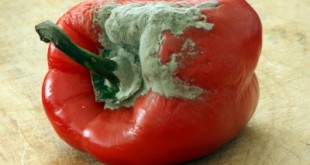Are you worth your weight in salt? In the Middle Ages, it was known as “White Gold.” In the first century, Roman soldiers were paid a salarium (Latin for “salt” and from which we get the word “salary”). Salt has been used since Old Testament times as a preservative, a seasoning and a disinfectant. In fact, the salt industry claims as many as 14,000 uses for this precious commodity!
The salt content of our blood is very similar to the salt in sea water. This pure, moist, unrefined salt can be found in ancient caves and sea beds. Sodium and chloride, along with more than 80 trace minerals, make up sea salt. Iodine (for thyroid function), magnesium and potassium (help regulate heart rate), iron (for the blood) and zinc (stimulates activity of enzymes) are only a few. These cofactors in sea salt are in the proper amounts that our bodies need. However, through refinement and bleaching, table salt becomes void of many of these beneficial cofactors. We all need sodium, but our bodies must be able to recognize and assimilate it. If not, we place a toxic burden on our system.
Unrefined sea salt, balanced with the consumption of clean, fresh, filtered water can offer many health benefits. At a cellular level, it provides hydration by helping the body hold water. It helps alkalinize the body, particularly the brain and kidneys. It also helps muscles function properly and strengthens bones. The endocrine system is regulated as the thyroid absorbs the iodine in sea salt. The immune system is boosted. Sea salt provides a buffer for blood sugar (thereby helping diabetic patients use less insulin). All of this and it tastes great, too!
Grey sea salt, most of which comes from the Atlantic coast of France, is light grey to a greyish purple due to the minerals it has absorbed. Traditional Celtic methods (with wooden tools) are used to collect the salt. This salt does not go through the refining process that is common to table salt, thereby leaving the texture coarse and more flavorful. The benefits help offset the higher price.
Even salt air renders healing effects. It is used in respiratory therapy for lung issues. It is helpful in strengthening the immune system, treating allergies and healing skin conditions. As a child I can remember having superficial scratches on my legs which stung as I played at the edge of the ocean. But once the stinging stopped, I realized they felt better and had begun healing.
God tells us, “You are the salt of the earth; but if the salt has become tasteless, how can it be made salty again? It is no longer good for anything, except to be thrown out and trampled under foot by men.” (Matthew 5:13 / NASB) Salt is a preservative, preserving from corruption. As Christians, we can be the “salt” that helps preserve the world from corruption.
 The Bottom Line, Ministries Christian News, Articles, & Poetry
The Bottom Line, Ministries Christian News, Articles, & Poetry 




